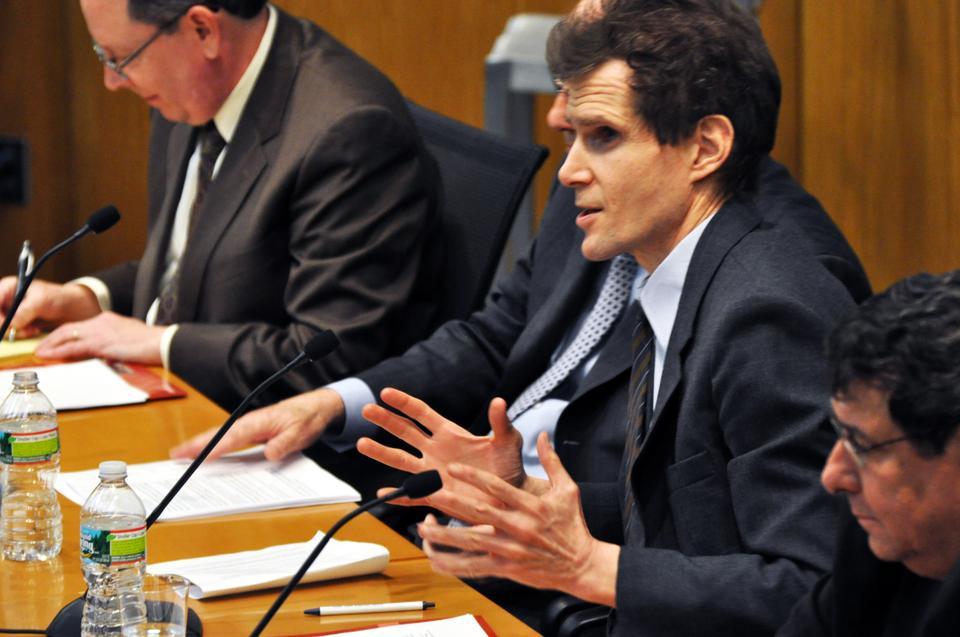
News
Summers Will Not Finish Semester of Teaching as Harvard Investigates Epstein Ties

News
Harvard College Students Report Favoring Divestment from Israel in HUA Survey

News
‘He Should Resign’: Harvard Undergrads Take Hard Line Against Summers Over Epstein Scandal

News
Harvard To Launch New Investigation Into Epstein’s Ties to Summers, Other University Affiliates

News
Harvard Students To Vote on Divestment From Israel in Inaugural HUA Election Survey
Panel Evaluates North Korea

In light of the recent death of North Korean leader Kim Jong-il and the shift of power to his son Kim Jong-un, a panel of Harvard professors said that fears of internal collapse in North Korea have not been realized. The experts said that although North Korean policy has scarcely changed since the long-time leader’s death, Korean citizens nevertheless see the transition as a moment to hope for reunification of the Koreas.
The speakers emphasized stability as the primary objective for the sake of international security.
“There is a common interest to prevent conflict in the Korean Peninsula,” said Kennedy School professor Anthony Saich. “The last thing that we want is destabilization in North Korea brought about by a failed succession.”
Saich’s worst-case scenario has not unfolded since Kim Jong-il’s death on Dec. 17. The state’s military leadership has remained loyal to his successor Kim Jong-un and internal policy remains unchanged, panelists said.
“Just because one person changes, it doesn’t mean that the whole system breaks down,” said Ja-Yoon Choe ’12, who lived in South Korea for 13 years.
The panelists enumerated several important diplomacy issues on which Kim Jong-un’s stances look similar to his father’s.
Tensions between North and South Korea, which escalated when North Korea allegedly sunk a South Korean naval ship in March 2010, have not eased. North Korea has also shown no signs of ending its nuclear program, despite past demands from foreign governments that the research cease.
“Russian officials have no expectation or hope at all that North Korea will give up its nuclear weapons program,” said Mark Kramer, the program director of the Harvard Project on Cold War Studies.
Despite such efforts by Kim Jong-un to maintain his father’s legacy, many still wish that in the absence of Kim Jong-il, the two Koreas will finally reunite, panelists said.
Chang Hoon Lee, a third-year college student visiting from Kyungpook National University in Daegu, South Korea, said that he feels his country cannot move forward economically unless it resolves its conflict with its northern neighbor.
“South Korea has a lot of limitations because of North Korea,” Lee said. “If North Korea and South Korea united, there is a chance for South Korea to reach a higher level.”
Korean history professor Sun Joo Kim, however, said that Koreans’ wish for reunification is fading.
“Twenty or thirty years ago, a lot of South Korean people had families living in the North, so they wanted to be connected and be reunited,” Kim said. “But now, that generation is getting old.”
Moreover, no steps are being taken toward reunification. “So far, everything seems to be holding, and history suggests that it will continue,” Korean history professor Carter J. Eckert said.
—Staff writer Michelle Denise L. Ferreol can be reached at mferreol@college.harvard.edu.
Want to keep up with breaking news? Subscribe to our email newsletter.
